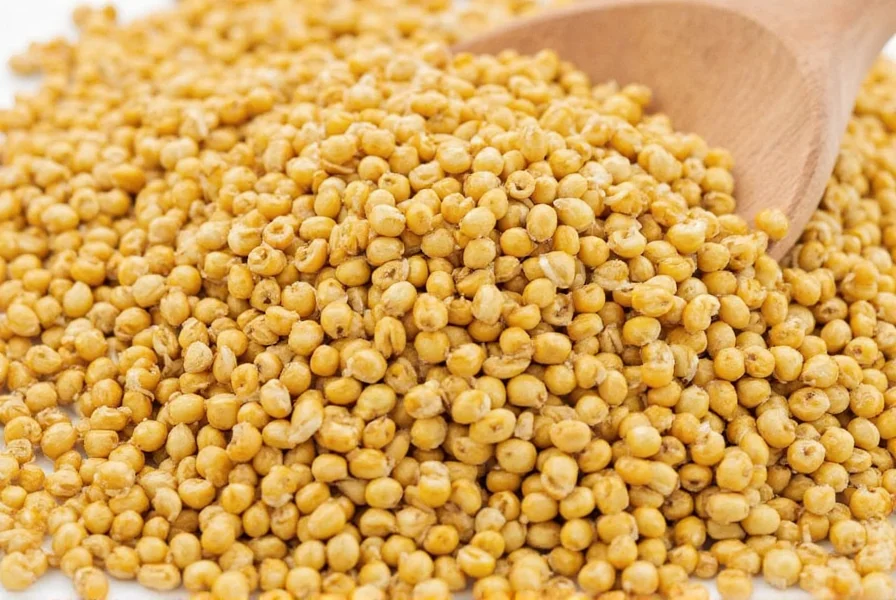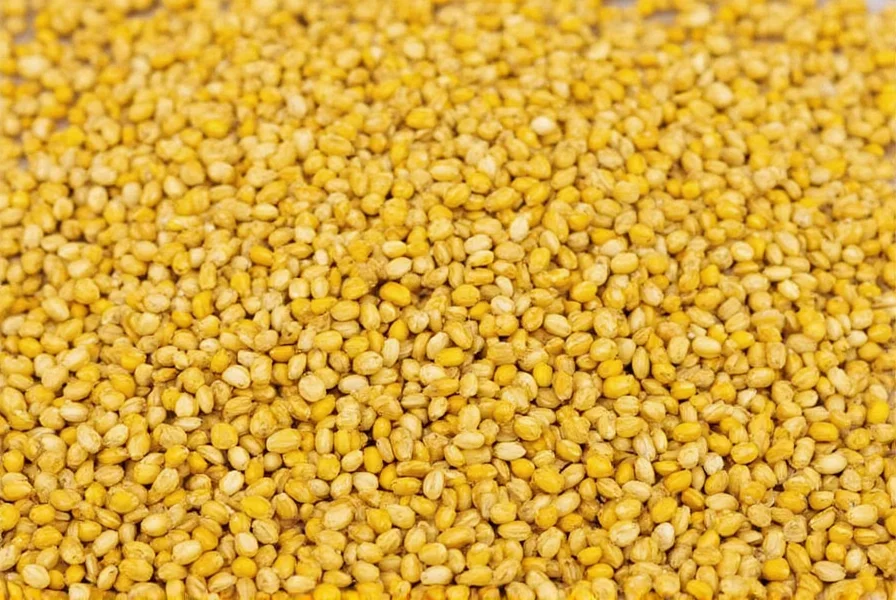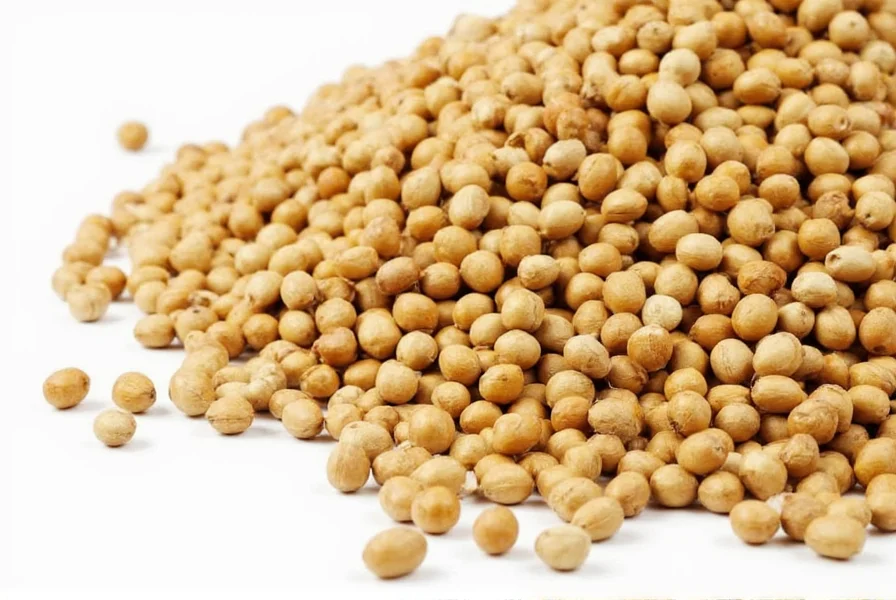Understanding Fenugreek's Science-Backed Health Benefits
Fenugreek, a culinary herb and traditional medicine used for centuries across Mediterranean and Asian cultures, has gained significant attention in modern research for its potential health benefits. This small-seeded plant contains bioactive compounds like diosgenin, 4-hydroxyisoleucine, and galactomannan fiber that contribute to its therapeutic properties. Let's examine what scientific evidence actually supports about fenugreek's health effects.
The Most Researched Fenugreek Benefits
Blood Sugar Management for Diabetes Support
Among the most well-documented fenugreek benefits for diabetes management, multiple clinical trials demonstrate its effectiveness. A comprehensive meta-analysis published in Nutrition Journal found that fenugreek supplementation significantly reduced fasting blood glucose levels by an average of 19.7 mg/dL and lowered HbA1c by 0.85% in type 2 diabetes patients. The mechanism appears to involve slowed carbohydrate digestion, improved insulin sensitivity, and stimulation of insulin production.
For those researching natural approaches to blood sugar control, studies typically use 2-5 grams of fenugreek seed powder daily or 1 gram of defatted seed extract. The fenugreek benefits for blood sugar regulation make it a valuable complementary approach, though it should never replace prescribed diabetes medications without medical supervision.
| Benefit | Scientific Support Level | Typical Dosage | Time to Notice Effects |
|---|---|---|---|
| Blood sugar regulation | Strong (multiple RCTs) | 2-5g seed powder daily | 2-8 weeks |
| Lactation support | Moderate (several studies) | 1.5-2.25g extract daily | 24-72 hours |
| Testosterone support | Emerging (limited studies) | 500mg-600mg extract daily | 4-12 weeks |
| Cholesterol management | Moderate (mixed results) | 18-25g seed powder daily | 4-12 weeks |
Support for Breastfeeding Mothers
One of the most immediate and noticeable fenugreek benefits for lactation is well-documented in clinical practice. Multiple studies, including research published in the Journal of Alternative and Complementary Medicine, show that fenugreek supplementation typically increases milk production within 24-72 hours. The mechanism appears related to diosgenin, a compound that mimics estrogen and stimulates mammary tissue.
Most lactation consultants recommend 1.5-2.25 grams of standardized fenugreek extract daily, though some mothers use up to 6 grams of seed powder. Notably, about 75% of breastfeeding women report increased milk supply, while others notice no effect—possibly due to individual physiological differences. The maple syrup-like body odor that often develops is a common indicator that the fenugreek is active in your system.

Testosterone and Sexual Health
Emerging research suggests potential fenugreek benefits for testosterone levels and sexual function in both men and women. A double-blind study in the Journal of the International Society of Sports Nutrition found that men taking 500mg of fenugreek extract daily for 8 weeks experienced significant increases in total testosterone, free testosterone, and sexual arousal compared to placebo.
For women, research published in Phytotherapy Research demonstrated that fenugreek extract improved sexual function scores, particularly in areas of desire, arousal, and orgasm. The effects appear related to fenugreek's influence on hormone pathways and nitric oxide production, which affects blood flow.
Cholesterol and Heart Health
Several studies indicate that fenugreek may help improve lipid profiles, making it relevant for those researching fenugreek cardiovascular benefits. Research in the European Journal of Clinical Nutrition showed that consuming 18-25 grams of fenugreek seed powder daily for 8 weeks reduced LDL cholesterol by 14% and triglycerides by 15% in people with mild hypercholesterolemia.
The soluble fiber galactomannan in fenugreek appears to bind to bile acids, prompting the liver to use cholesterol to produce more bile, thereby lowering circulating cholesterol levels. While not as potent as prescription statins, fenugreek offers a natural complementary approach to heart health.
Other Potential Benefits with Varying Evidence
Anti-Inflammatory Properties
Fenugreek contains several compounds with demonstrated anti-inflammatory effects in laboratory studies. Research suggests fenugreek may help reduce inflammatory markers like TNF-alpha and IL-6, potentially benefiting conditions involving chronic inflammation. However, more human clinical trials are needed to confirm these fenugreek anti-inflammatory benefits in real-world applications.
Skin Health Applications
Traditional medicine has long used fenugreek topically for skin conditions. Modern research supports some of these uses, with studies showing fenugreek extract may help accelerate wound healing and reduce skin inflammation. The mucilage in fenugreek seeds creates a protective barrier when applied topically, while antioxidants help combat oxidative stress in the skin.

Safe Usage Guidelines and Considerations
Understanding proper fenugreek dosage is crucial for experiencing benefits while minimizing risks. Most clinical studies use:
- For blood sugar control: 2-5 grams of seed powder daily or 1 gram of standardized extract
- For lactation support: 1.5-2.25 grams of standardized extract daily
- For testosterone support: 500-600mg of specialized extract daily
Potential Side Effects and Precautions
While generally safe when used appropriately, fenugreek can cause:
- Maple syrup-like body odor (harmless but noticeable)
- Digestive upset at higher doses (nausea, diarrhea)
- Lowered blood sugar (risk for hypoglycemia in diabetics)
- Rare allergic reactions (particularly in people allergic to peanuts or chickpeas)
Special precautions apply for:
- Pregnant women: Fenugreek may stimulate uterine contractions; avoid except under medical supervision
- People with diabetes: Monitor blood sugar closely when combining with diabetes medications
- Those scheduled for surgery: Discontinue at least 2 weeks before due to potential blood sugar effects
Choosing Quality Fenugreek Products
When selecting fenugreek supplements, look for:
- Standardized extracts specifying active compound percentages
- Third-party testing verification (look for NSF, USP, or ConsumerLab seals)
- Clear dosage information matching research protocols
- Reputable manufacturers with transparent sourcing
For culinary use, fresh fenugreek leaves (methi) provide nutritional benefits without concentrated effects, while seeds can be soaked, sprouted, or used as powder in cooking for milder daily fenugreek consumption benefits.
Conclusion: Evidence-Based Perspective on Fenugreek
Fenugreek offers several evidence-supported health benefits, particularly for blood sugar management and lactation support. While not a miracle cure, it represents a valuable complementary approach when used appropriately. The strongest scientific backing exists for its role in diabetes management and increasing breast milk production, with emerging research supporting benefits for testosterone levels and cholesterol management.
As with any natural remedy, individual responses vary, and fenugreek should complement—not replace—conventional medical care. Consult with a healthcare provider before using fenugreek therapeutically, especially if managing chronic health conditions or taking medications. When used thoughtfully, fenugreek can be a valuable addition to a holistic health approach based on scientific evidence rather than anecdotal claims.
Frequently Asked Questions
How quickly does fenugreek work for increasing milk supply?
Most breastfeeding mothers notice increased milk production within 24-72 hours of starting fenugreek supplementation at the recommended dose of 1.5-2.25 grams of standardized extract daily. The maple syrup-like body odor that often develops is a common indicator that the fenugreek is active in your system. However, about 25% of women don't respond to fenugreek, possibly due to individual physiological differences.
Can fenugreek lower blood sugar too much when taking diabetes medication?
Yes, fenugreek can potentially cause hypoglycemia (dangerously low blood sugar) when combined with diabetes medications like insulin or sulfonylureas. Clinical studies show fenugreek can reduce fasting blood glucose by 14-21%. If you have diabetes and want to use fenugreek, consult your healthcare provider first and monitor your blood sugar levels closely, as medication adjustments may be necessary.
What's the difference between fenugreek seeds and fenugreek extract?
Fenugreek seeds contain the whole plant material (2-5 grams daily in studies), while standardized extracts concentrate specific active compounds (typically 500mg-2g daily). Extracts often specify percentages of key components like 4-hydroxyisoleucine or saponins. For research-backed fenugreek extract benefits versus whole seeds, extracts provide more consistent dosing of active compounds, while whole seeds offer additional fiber and nutrients. The choice depends on your specific health goals and tolerance.
Are there any medications that interact dangerously with fenugreek?
Yes, fenugreek has significant interactions with several medication classes. It can enhance the effects of diabetes medications (risk of hypoglycemia), blood thinners like warfarin (increased bleeding risk), and medications metabolized by the CYP3A4 liver enzyme pathway. Fenugreek's high coumarin content contributes to the blood-thinning interaction. Always consult your healthcare provider before combining fenugreek with prescription medications, especially if you take drugs for diabetes, blood clotting disorders, or thyroid conditions.











 浙公网安备
33010002000092号
浙公网安备
33010002000092号 浙B2-20120091-4
浙B2-20120091-4